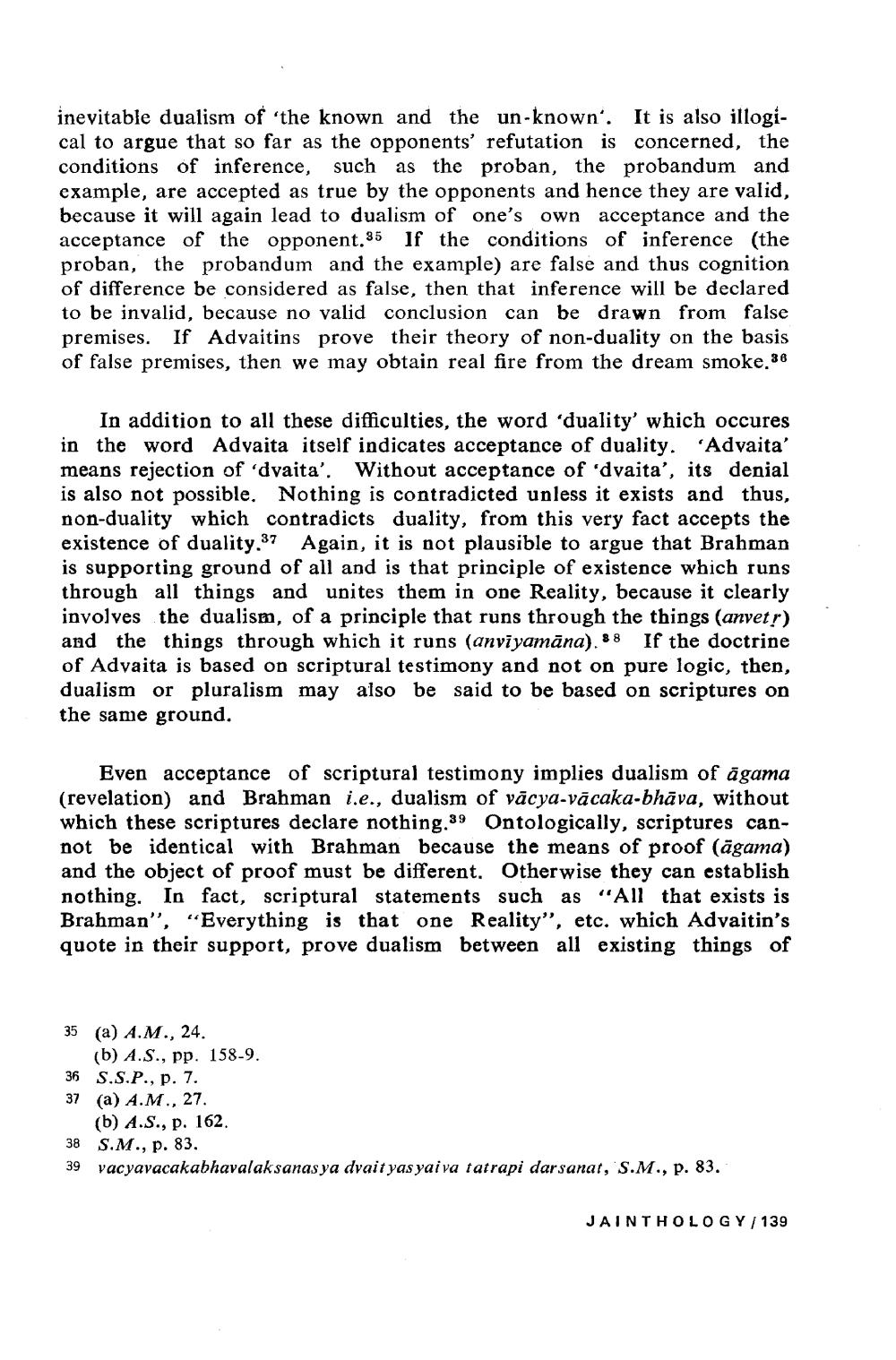________________
inevitable dualism of 'the known and the un-known'. It is also illogical to argue that so far as the opponents' refutation is concerned, the conditions of inference, such as the proban, the probandum and example, are accepted as true by the opponents and hence they are valid, because it will again lead to dualism of one's own acceptance and the acceptance of the opponent.35 If the conditions of inference (the proban, the probandum and the example) are false and thus cognition of difference be considered as false, then that inference will be declared to be invalid, because no valid conclusion can be drawn from false premises. If Advaitins prove their theory of non-duality on the basis of false premises, then we may obtain real fire from the dream smoke. 36
In addition to all these difficulties, the word 'duality' which occures in the word Advaita itself indicates acceptance of duality. 'Advaita' means rejection of 'dvaita'. Without acceptance of 'dvaita', its denial is also not possible. Nothing is contradicted unless it exists and thus, non-duality which contradicts duality, from this very fact accepts the existence of duality.37 Again, it is not plausible to argue that Brahman is supporting ground of all and is that principle of existence which runs through all things and unites them in one Reality, because it clearly involves the dualism, of a principle that runs through the things (anvetr) and the things through which it runs (anviyamāna). 88 If the doctrine of Advaita is based on scriptural testimony and not on pure logic, then, dualism or pluralism may also be said to be based on scriptures on the same ground.
Even acceptance of scriptural testimony implies dualism of agama (revelation) and Brahman i.e., dualism of vācya-vācaka-bhāva, without which these scriptures declare nothing.39 Ontologically, scriptures cannot be identical with Brahman because the means of proof (agama) and the object of proof must be different. Otherwise they can establish nothing. In fact, scriptural statements such as "All that exists is Brahman", "Everything is that one Reality, etc. which Advaitin's quote in their support, prove dualism between all existing things of
35 (a) A.M., 24.
(b) A.S., pp. 158-9.
S.S.P., p. 7. 37 (a) A.M., 27.
(b) A.S., p. 162. 38 S.M., p. 83. 39 vacyavacakabhavalaksanas ya dvait yas yaiva tatrapi darsanat, S.M., p. 83.
JAINTHOLOGY/139




